Psychology Reveals 8 Odd Behaviors Often Linked To Hidden Depression
These subtle behaviors hint at something way bigger when it comes to mental health.
 Kevin turcios | Unsplash
Kevin turcios | Unsplash When you have a cold or flu, the symptoms are obvious: Coughing, sneezing, congestion, and a general hatred of the universe. Symptoms and signs of hidden depression, on the other hand, aren’t as clear as rom-coms and made-for-TV movies make them out to be.
Intense sadness and hopelessness are only some of the behaviors — not only can depressive symptoms range from mild to severe, but they can also disguise themselves as everyday habits and emotions you wouldn’t necessarily equate with being depressed.
Here are odd behaviors often linked to hidden depression:
1. You keep yourself excessively busy
 Yuri A / Shutterstock
Yuri A / Shutterstock
Sure, we all have hectic schedules, but someone with depression might use being perma-busy as a way to steer clear of their feelings. One study found that workaholism frequently co-occurs with psychiatric disorders like depression and anxiety.
“Keeping busy might be a way for them to ignore or avoid the painful issues that may be contributing to or triggering their depression,” says SooMi Lee-Samuel, M.D., medical director at Timberline Knolls, a residential treatment center in Illinois.
2. You feel nothing
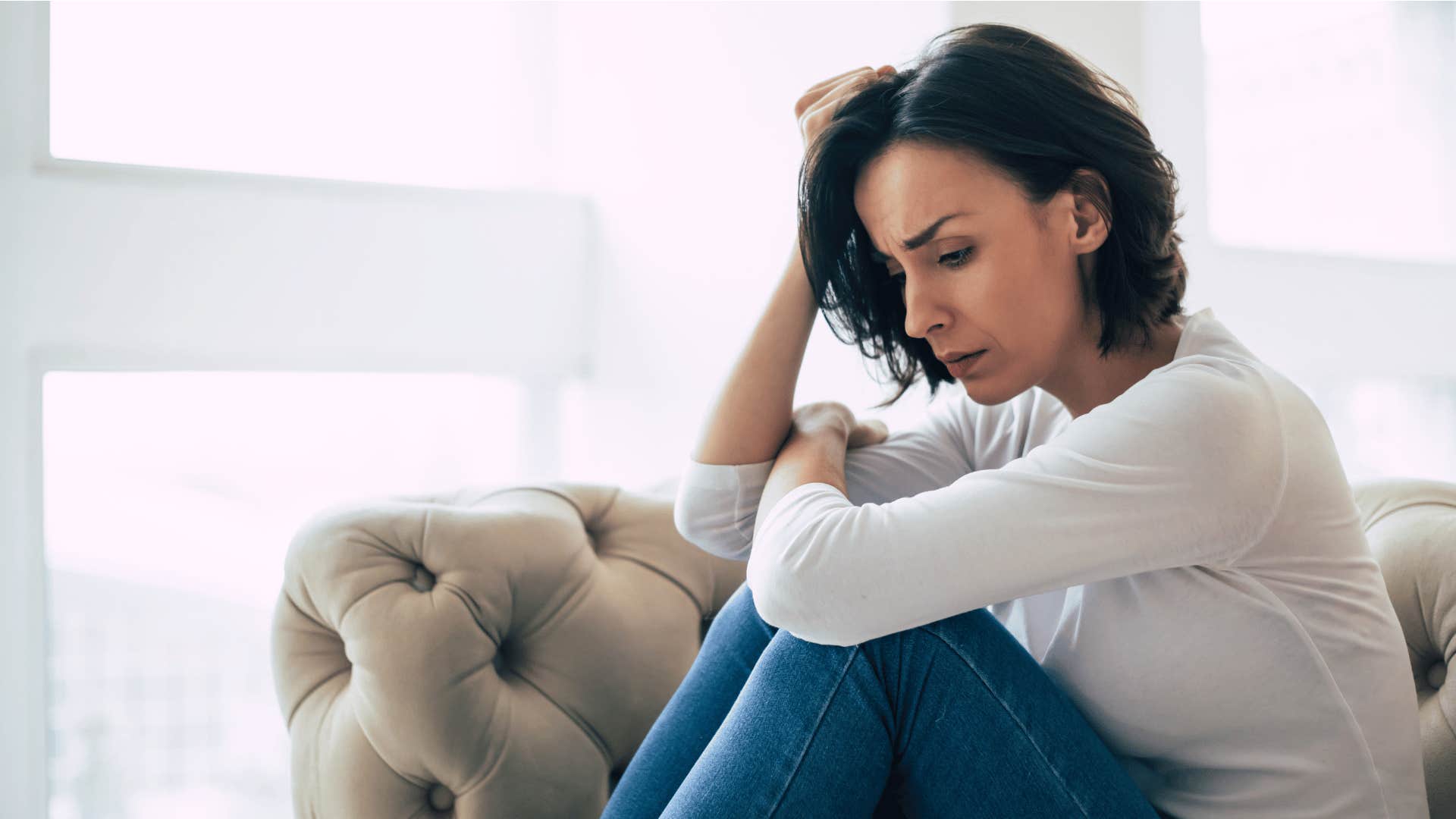 My Ocean Production / Shutterstock
My Ocean Production / Shutterstock
Depression might not translate into extreme sadness, but apathy instead, a tricky gray area where you’re not sad, but you’re not exactly happy, either. You don’t feel much of anything.
Feeling nothing, often described as emotional blunting or anhedonia, is a significant symptom of depression, where individuals experience a lack of pleasure or interest in activities they once enjoyed—feeling emotionally numb or empty, even when faced with positive stimuli.
A 2021 study published in Frontiers in Psychiatry showed alterations in brain regions associated with reward processing in individuals with depression, which may contribute to the experience of anhedonia.
“With depression, these alterations of mood (whether sadness, anger or no emotion at all) are sustained, rather than merely being an appropriate emotional response to an event,” says Lee-Samuel.
3. You toss and turn on the regular
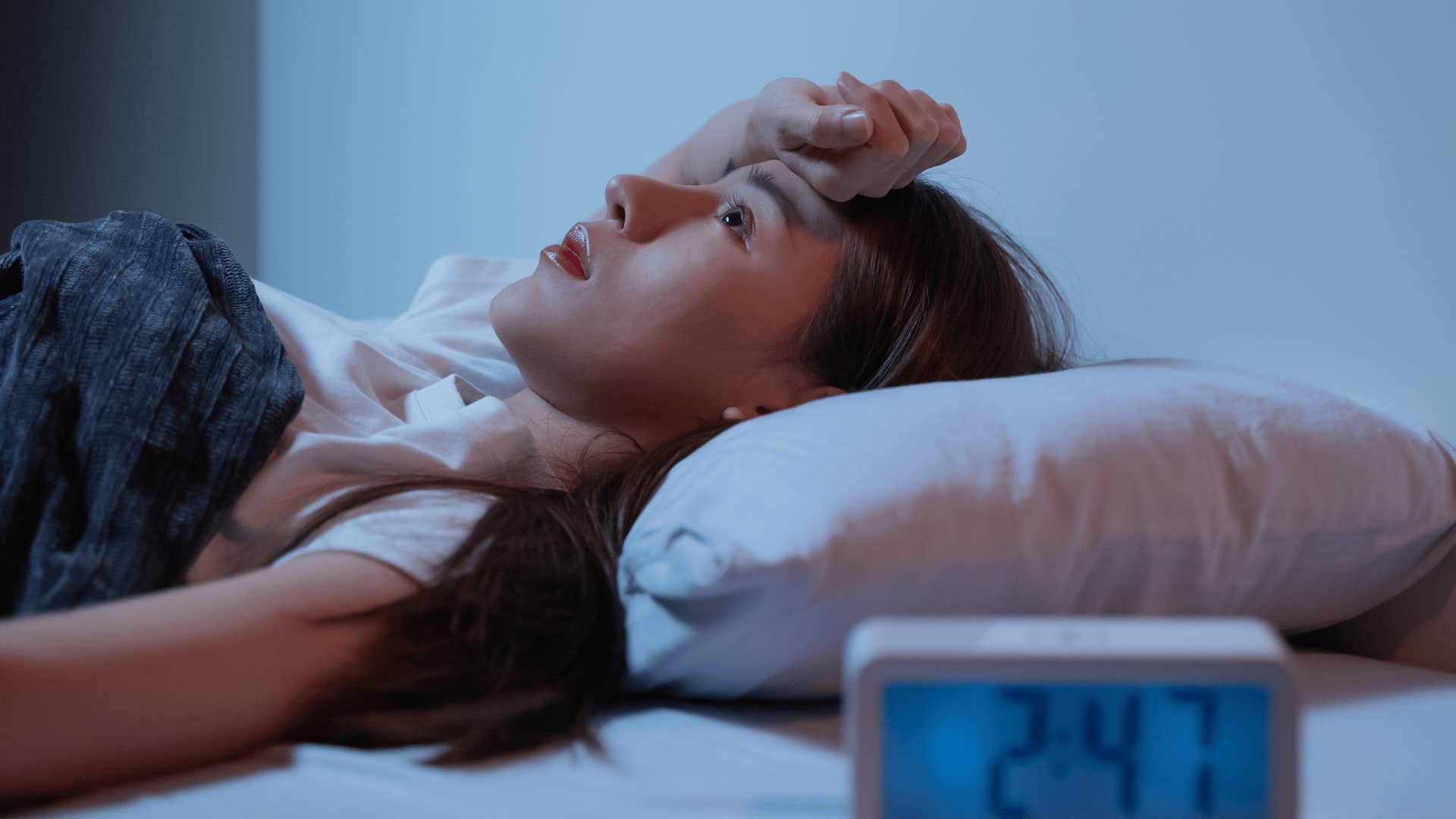 Pormezz / Shutterstock
Pormezz / Shutterstock
It’s easy to blame your lack of sleep on a late night at work or a pet who only wants to play at 3 AM, but persistent sleep disturbances can also be a sign of depression. Some people might oversleep and find it increasingly difficult to get up in the morning, while others might struggle to fall asleep and stay asleep, says psychiatrist Carly Snyder, M.D.
The perpetual exhaustion can domino into feelings of anxiety and frustration, not to mention exacerbate other depressive symptoms you might be experiencing.
4. You hurt everywhere
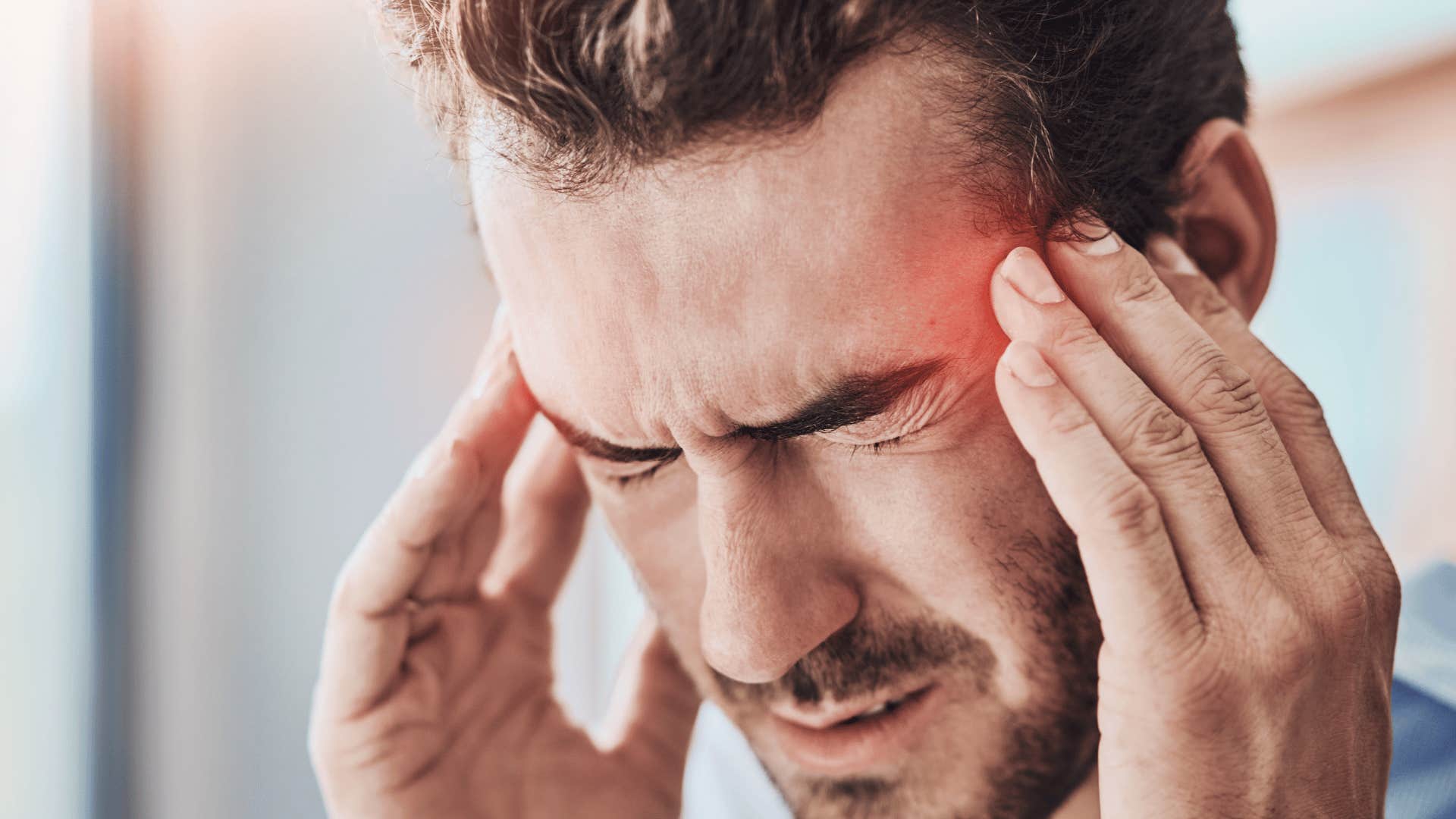 Yuri A / Shutterstock
Yuri A / Shutterstock
“Depression can trigger painful symptoms like headaches, whole-body aches, and fatigue,” says Lee-Samuel. (And, in some cases, pain may be the first or only sign of depression.) “The pain may make the depression worse, which may then heighten the pain even more, creating a vicious cycle where one constantly feeds into the other.”
Research from a 2023 study indicates a strong correlation between experiencing widespread bodily pain and depression. People experiencing depression often report vague aches and pains across their body, sometimes even as a primary presenting symptom, suggesting a significant link between the two conditions. This relationship is considered bidirectional, meaning pain can exacerbate depression, and depression can increase pain perception.
5. You struggle to make decisions
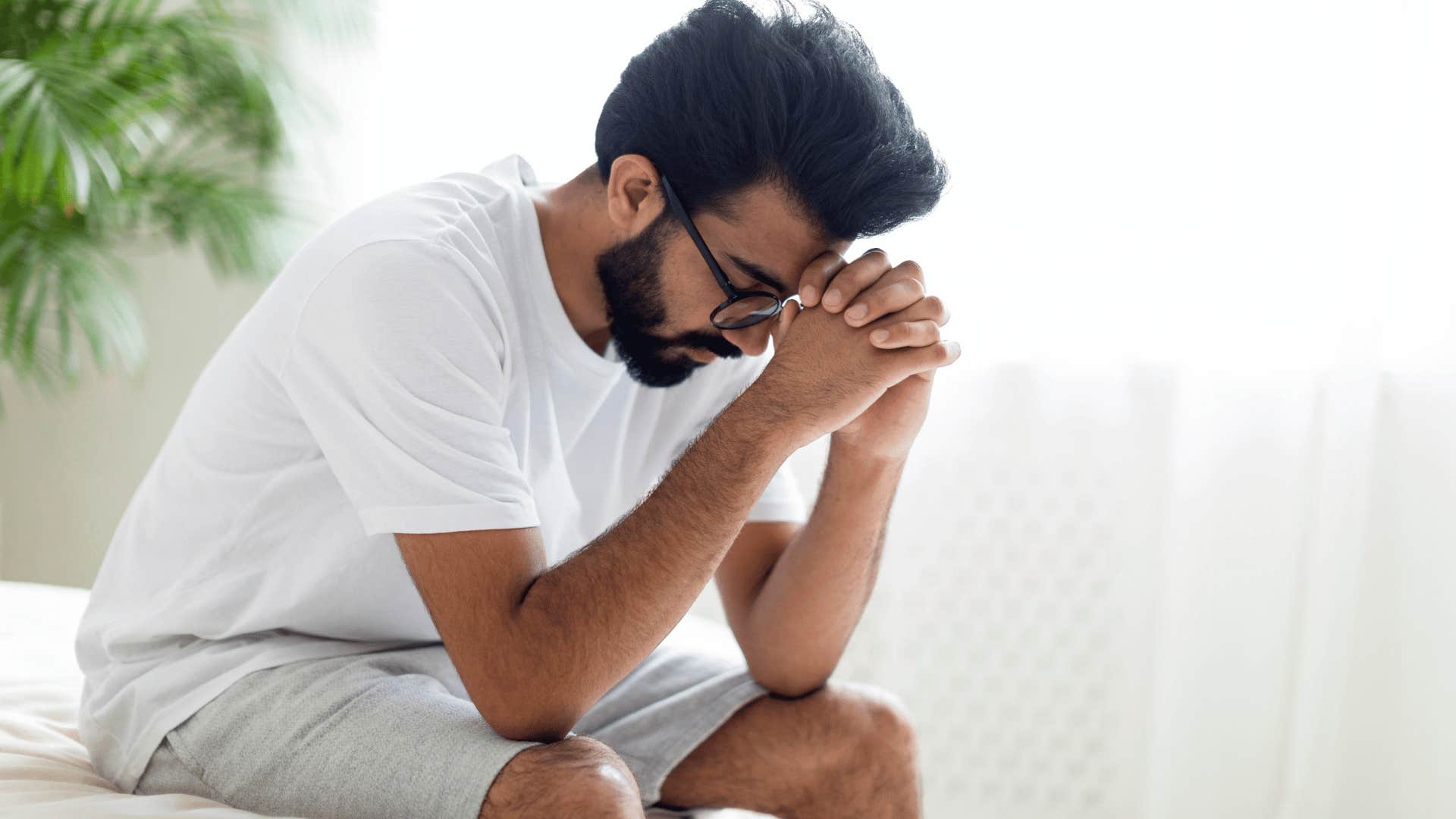 Prostock-studio / Shutterstock
Prostock-studio / Shutterstock
“Physiologically, the part of the brain that affects motivation and decision-making is shown to have gray matter loss in those with depression,” says clinical psychologist Elizabeth Lombardo, Ph.D., author of Better Than Perfect. This can cause even the smallest of decisions to feel overwhelming.
6. Your appetite is touch and go
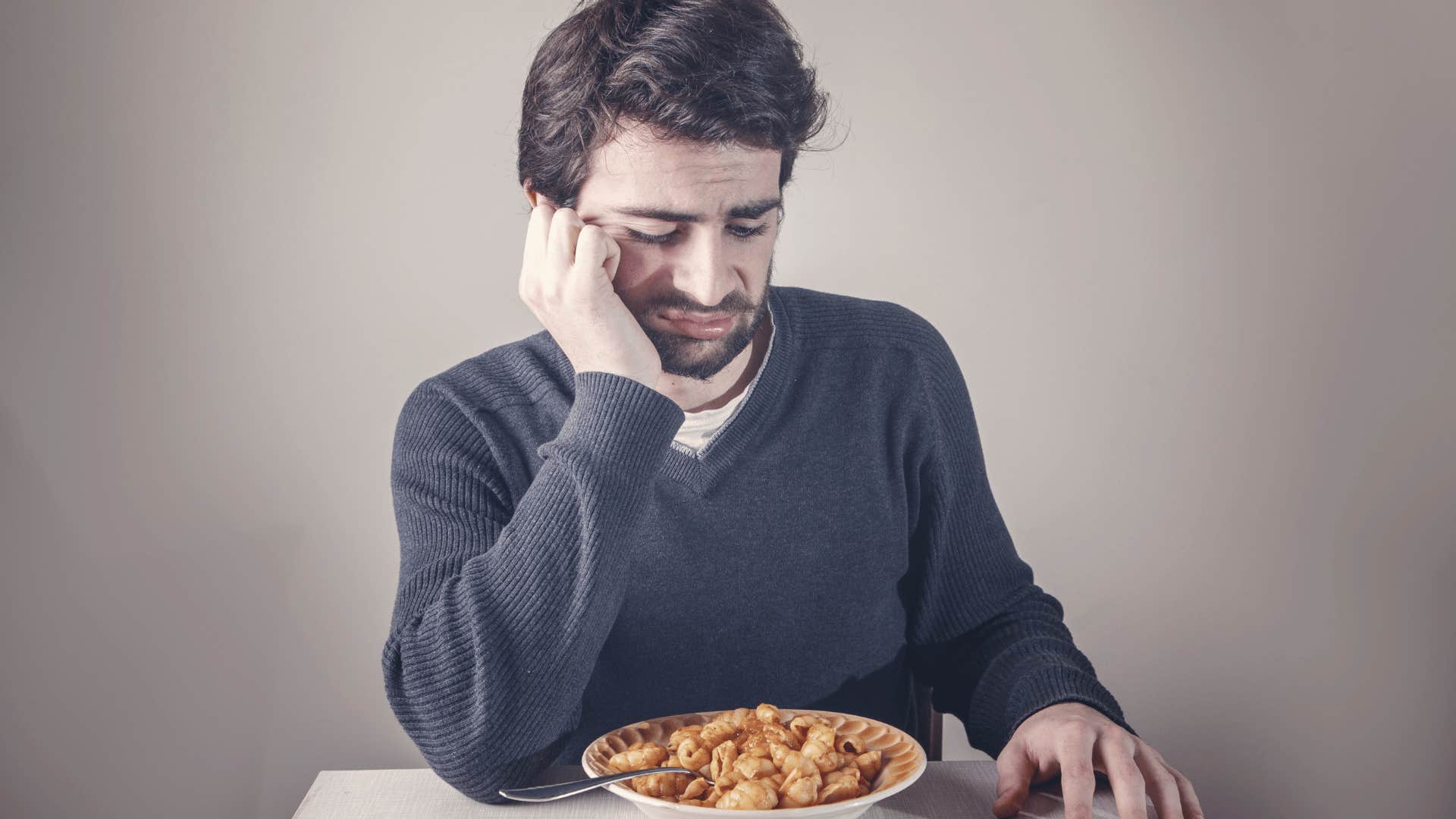 TeodorLazarev / Shutterstock
TeodorLazarev / Shutterstock
Any change in your eating habits could be a precursor of depression. Some people don’t want to eat when they’re depressed; others might try to soothe the emotional pain of depression by reaching for comfort foods, according to Lombardo.
Meanwhile, if you’re all about eating healthy and suddenly find yourself drowning in takeout containers and junk food wrappers, a diet downgrade could also be a sign of depression, says Snyder.
Significant changes in appetite, whether experiencing increased or decreased food intake, can be a notable sign of depression. Findings from a 2019 study show distinct brain activity patterns associated with these appetite fluctuations in depressed individuals, particularly within reward and interoceptive brain regions, depending on whether appetite increases or decreases. The way your brain responds to food cues can differ based on whether you are experiencing depression-related appetite changes.
7. The slightest thing sets you off
 Ekateryna Zubal / Shutterstock
Ekateryna Zubal / Shutterstock
Since depression is so closely attributed to sadness, irritability is a common sign that most people overlook.
“Consider things you do routinely, such as waiting in line for coffee at Starbucks,” says Snyder. “If you find yourself getting super agitated about things you’d normally shrug off — a slow barista, a customer who pays in nickels — this might be a red flag that something else is brewing under the surface.”
8. You burst into tears over something inconsequential
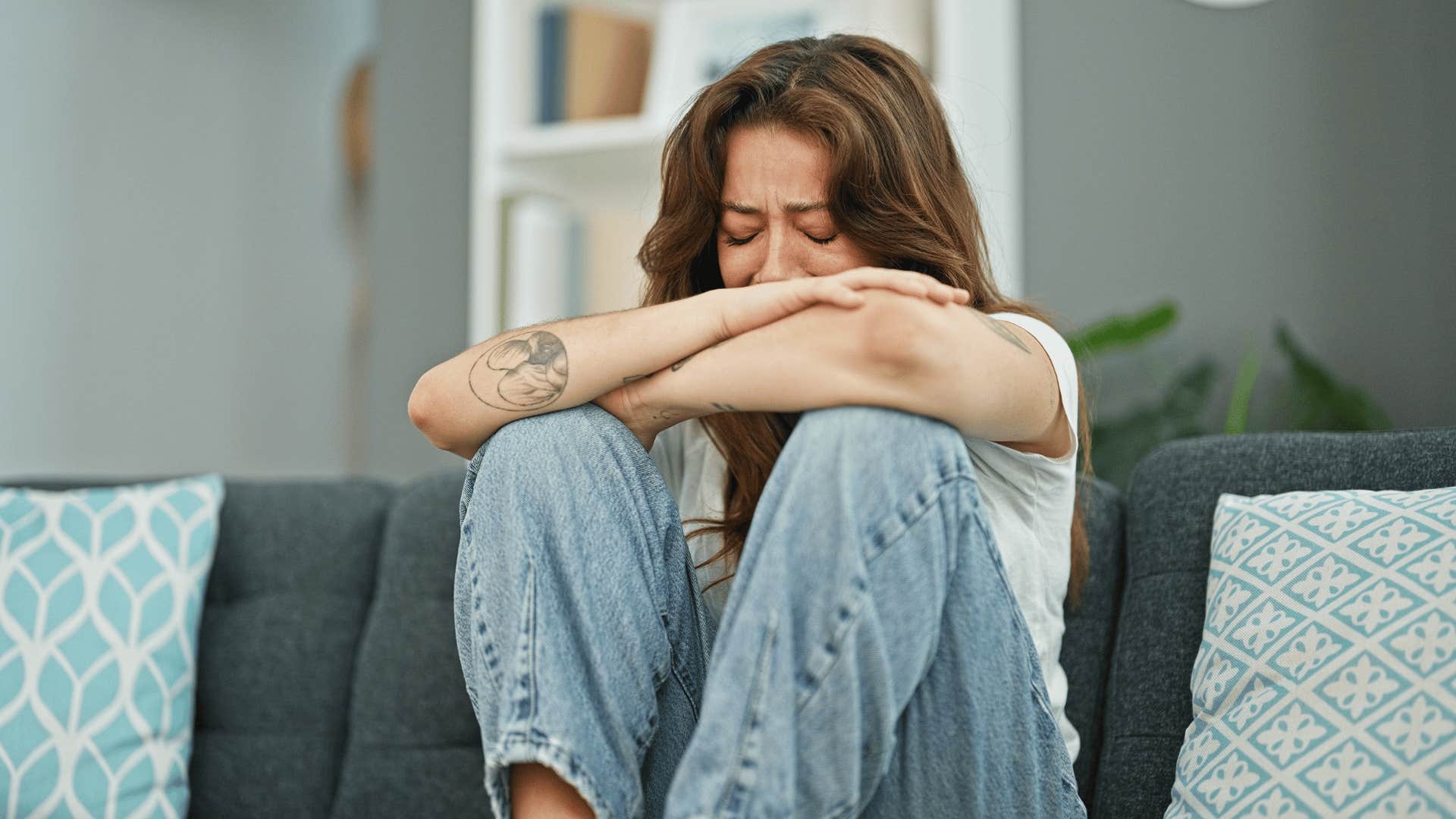 Krakenimages.com / Shutterstock
Krakenimages.com / Shutterstock
On the flip side, you might find that you sob over the tiniest things (a minor tiff with your partner, losing your keys, accidentally buying low-fat yogurt).
“Small issues can feel enormous when you’re depressed,” warns Snyder. “Rather than handle these things as you otherwise would, you may cry more easily and then have trouble closing the floodgates.” In other words, if little, everyday things have you reaching for the Kleenex, take note.
While frequent, sudden outbursts of tears can be a potential indicator of depression, it's not a definitive sign on its own, as crying can be triggered by various factors, and individuals with depression may not always exhibit excessive crying. However, a 2014 study showed that depressed individuals might have a different pattern of crying, often with less emotional release and a higher likelihood of crying in response to seemingly minor triggers, compared to non-depressed people.
If you think you might be depressed, start by taking a hard look at any pesky thoughts and feelings you’re having, as well as any behaviors that are making you feel stuck, suggests licensed clinical psychologist Stephanie J. Wong, Ph.D.
On a scale of one to 10, with one being the least intense and 10 being the most, rate the intensity of these thoughts, feelings, and behaviors. If one or more are intense and are putting a damper on important aspects of your life, consider talking things out with a mental health professional.
Don’t let the seemingly little things go unheeded; they could be tipping you off to something larger. Take charge of how you feel.
If you or somebody that you know is experiencing a mental health crisis, there is a way to get help. Call SAMHSA’s National Helpline at 1-800-662-HELP (4357) or text "HELLO" to 741741 to be connected with the Crisis Text Line.
SELF is the authority on health, fitness, beauty, and style for the woman who wants to achieve her personal best in all aspects of her life.

